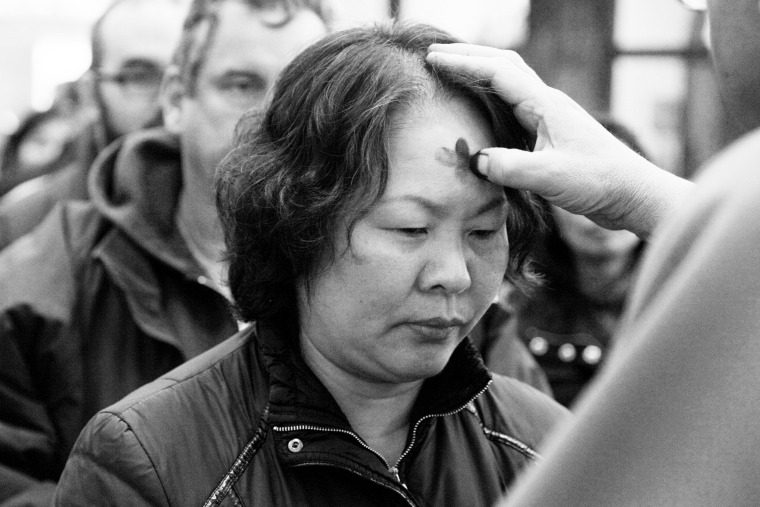The religious share of the Asian American population has declined, according to data published Wednesday by the Pew Research Center. Even so, many Asian Americans say they feel close to religious traditions for nonreligious reasons.
The report, which analyzed beliefs across Asian American groups, found that 32% are religiously unaffiliated, up from 26% in 2012.
The share of Asian American Christians dropped the most dramatically, from 42% in 2012 to 34% now.
Buddhism is also down by 3 percentage points, while Hinduism and Islam have risen slightly, going from 10% to 11% and 4% to 6% respectively.
The overall decline in religiosity isn’t all that surprising, an expert said, and it has been reflected in the U.S. population at large. A 2021 Pew study found that over a decade, the percentage of adults with no religion grew from 16% to 29%.
But according to the new survey, 40% of Asian Americans said they feel close to religious traditions, though they don’t identify with a religion.
Although the religiously affiliated population is shrinking, it might not mean Asian Americans are dropping spirituality altogether, said Dheepa Sundaram, an assistant professor of religious studies at the University of Denver, who wasn’t involved with the survey.
“I think the growing hold of Christian nationalist views, particularly among political leadership, has probably put off a lot of folks that don’t hold political positions that align with that view,” she said. “I’m wondering if positions on abortion, positions on immigration, positions on social programs have all sort of had a chilling effect.”
Asian Americans who are younger than 50, were born in the U.S. and lean Democratic are more likely to be religiously unaffiliated, the survey found. Chinese and Japanese Americans are also the least religious among all surveyed ethnic groups, at 56% and 47% unaffiliated, respectively.
But Sundaram said the way Americans define religion has always made Asian belief systems hard to understand or measure. For example, defining religiosity by how often a person attends service may not apply for her Hindu parents, she said.
“The category of religion does not mean the same thing to all people and is steeped in Western assumptions about faith and belief,” she said. “For example, Chinese people rarely use the term ‘religion’ to describe their beliefs and traditions or the language of belief to discuss their relationships with gods.”
Some Asian Americans who described themselves as religiously unaffiliated said their traditions were more philosophies than religions, according to the report.
“Confucianism and Daoism is part of my culture. However, for me, it’s a school of philosophy. I do not identify myself as being a Daoist or Confucian,” a Vietnamese participant is quoted saying.
That seems to be most prevalent for Buddhism, with 35% of religiously unaffiliated Asian Americans saying they feel close to Buddhism for reasons outside of religion.
Many surveyed also said they feel close to Christianity simply as a byproduct of living in the U.S.
“My whole life I was exposed to Christmas and all this stuff,” another participant said. “Even though I don’t believe in it, we had to give gifts … so it was always part of our culture, even though we don’t believe in it.”

